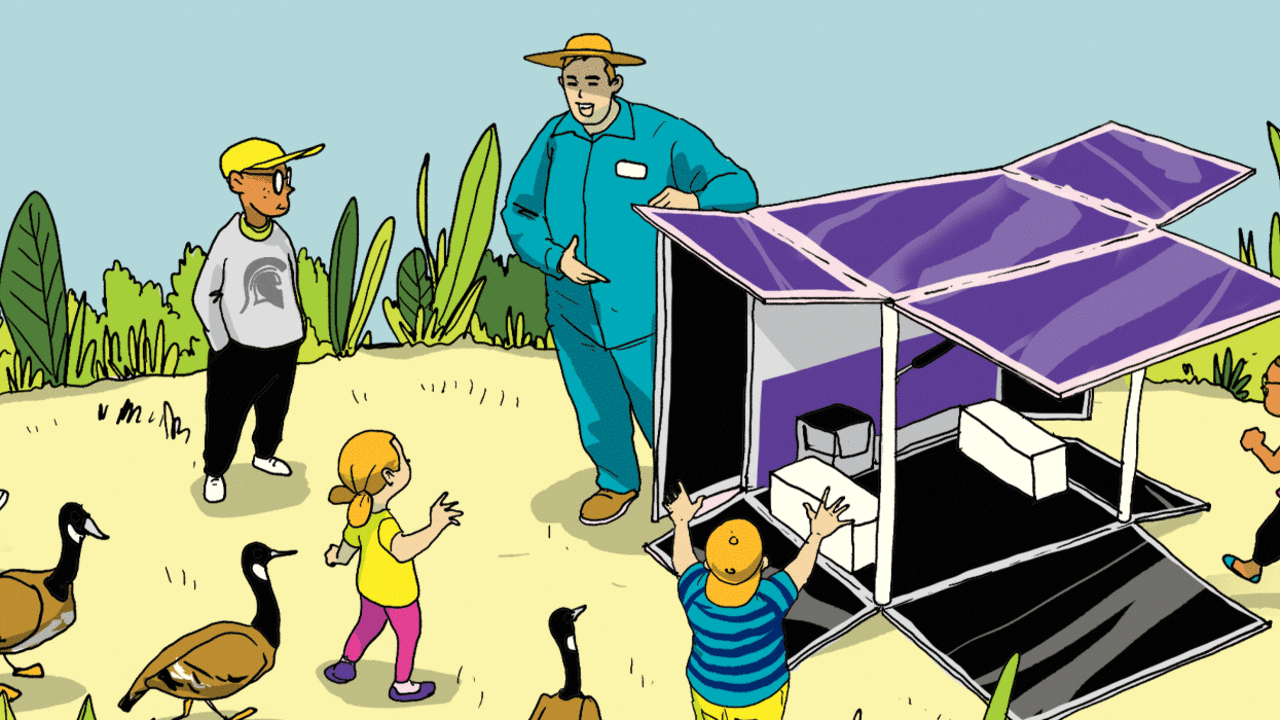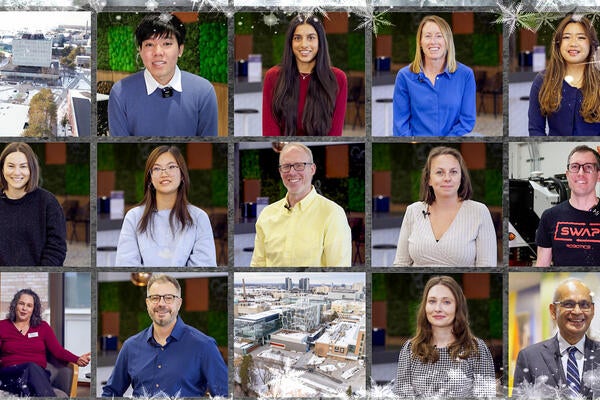
Gifts of inspiration, education and hope
The generosity of the Lyle S. Hallman Foundation can be felt beyond our campus – affecting our local community, economy and health care system

The generosity of the Lyle S. Hallman Foundation can be felt beyond our campus – affecting our local community, economy and health care system
By Jude Doble Office of AdvancementFor more than 20 years, the University of Waterloo community has been buoyed by the compassionate support from Lyle Hallman and the Lyle S. Hallman Foundation.
But the impact can be felt beyond the boundaries of our campus, in a mobile STEM makerspace that travels to underserved communities, an entrepreneurship program for Indigenous business, and multi-layered support for our healthcare system.
In 2020, the Foundation will fund the creation of Indigenous business case studies and experiential courses in preparation for the first Indigenous entrepreneurship undergraduate program at St. Paul’s University College. St. Paul’s is well known for its social enterprise incubator GreenHouse and its leadership in Indigenous student services. With this new program, St. Paul’s is well-poised to become Canada’s leader in Indigenous entrepreneurship education.
St. Paul’s is engaging Indigenous business leaders and organizations to share their experiences and create a curriculum that addresses the priorities and challenges of Indigenous entrepreneurs.
JP GLADU, National Indigenous leader and program advisor
Indigenous people need to see themselves reflected in successful business cases and see how their impact is reflected in the national economy.
“Indigenous people need to see themselves reflected in successful business cases and see how their impact is reflected in the national economy,” says JP Gladu, St. Paul’s former chancellor, a national Indigenous leader and advisor for the program. “This program will also help people build their knowledge of Indigenous enterprises and enhance reconciliation efforts.”
This initiative is highly collaborative and St. Paul’s is working with local partners like the Canadian Council for Aboriginal Business, Six Nations of the Grand River Development Corporation and the Aboriginal Small Business management program.
Laura Manning, Executive Director of the Hallman Foundation says, “St. Paul's program is unique and tailored to attract Indigenous students, while addressing a meaningful gap in traditional business school curriculum. This academic program is underpinned by community-level partnerships that will allow students to explore and build their entrepreneurial capacity – something Canada needs more of."
The Foundation will also fund the MakerCube, an extension of the award-winning Engineering Science Quest programs operated through the Faculty of Engineering. Building on their successful in-school model, this mobile MakerCube will offer youth, ages six to 18, space to collaborate, learn, explore and create prototypes using maker equipment in their own communities. The MakerCube will target underserved areas to ensure equal access to STEM learning, design and development of important entrepreneurial skills. Thanks to the Foundation’s investment, this experience will be free to all users and reach kids where they are – their neighbourhoods, community centres and local events.
Long before creating the Foundation, Lyle made several inspirational personal gifts to Waterloo, especially to the Faculty of Applied Health Sciences. These gifts are still bearing fruit today, in the form of buildings and labs, professorships, research fellowships and scholarships. His visionary giving established seven endowments, allowing these gifts to continue their financial support for many years to come.
The result has been decades of important research – including smoking cessation research aimed at youth – community exercise programs, Waterloo’s graduate program in Health Informatics and dozens of scholarships to support passionate future healthcare workers.
This philanthropic tradition continues through the independent Lyle S. Hallman Foundation, which invests in children and families, higher education and healthcare in the Region of Waterloo.

Read more
Here are the people and events behind some of this year’s most compelling Waterloo stories

Read more
A winter holiday message from President Vivek Goel

Read more
Shop Canadian this holiday season with festive porch plants, fashion-forward apparel, craft spirits and more from Waterloo entrepreneurs
The University of Waterloo acknowledges that much of our work takes place on the traditional territory of the Neutral, Anishinaabeg, and Haudenosaunee peoples. Our main campus is situated on the Haldimand Tract, the land granted to the Six Nations that includes six miles on each side of the Grand River. Our active work toward reconciliation takes place across our campuses through research, learning, teaching, and community building, and is co-ordinated within the Office of Indigenous Relations.